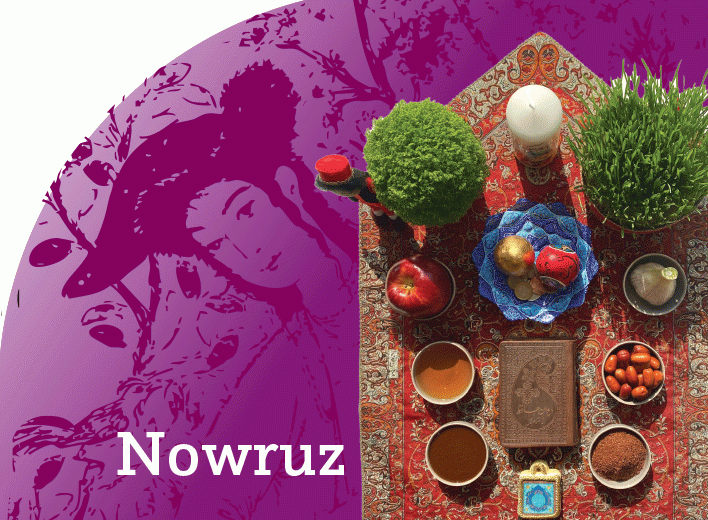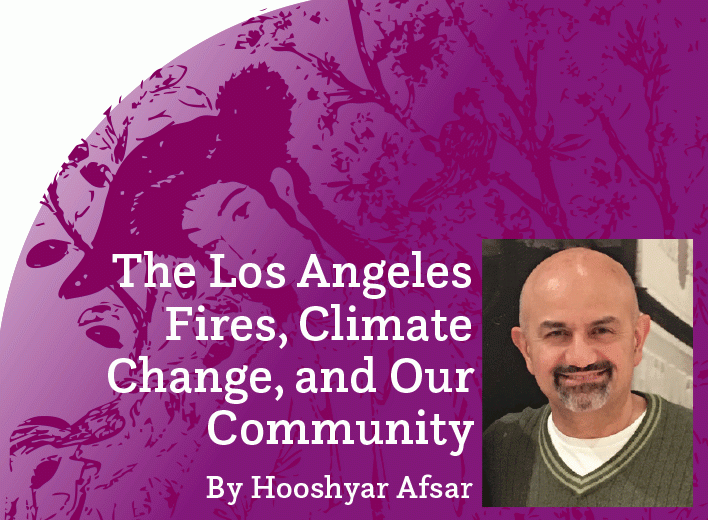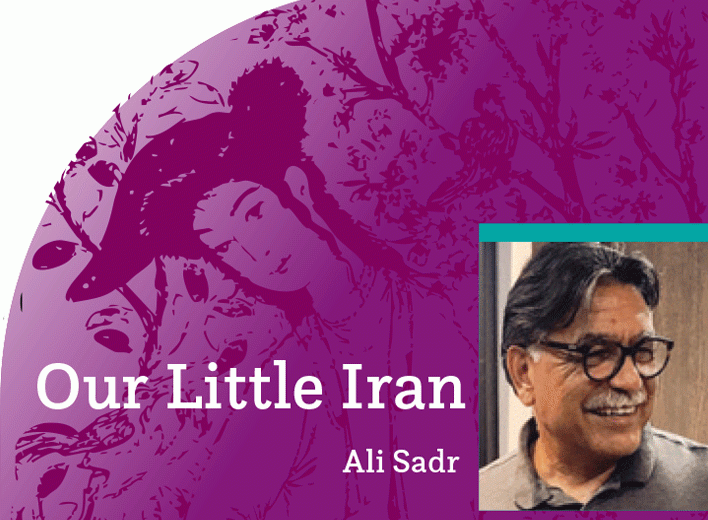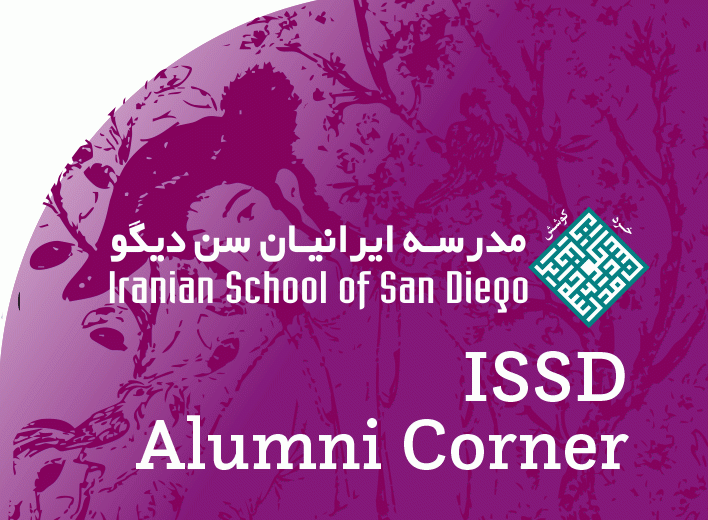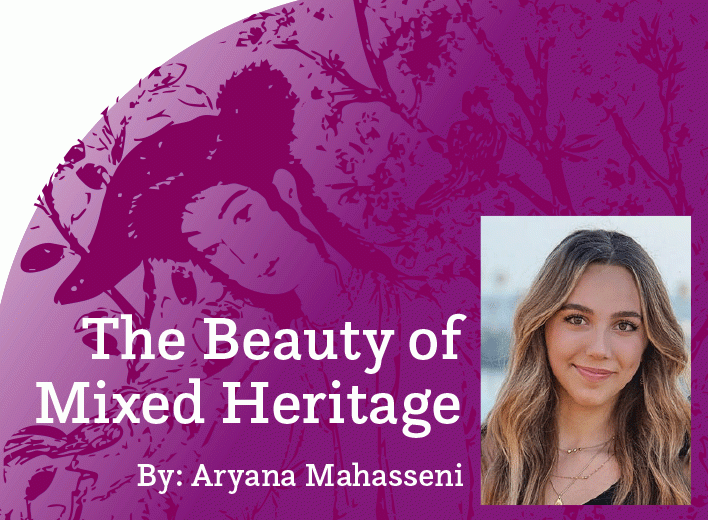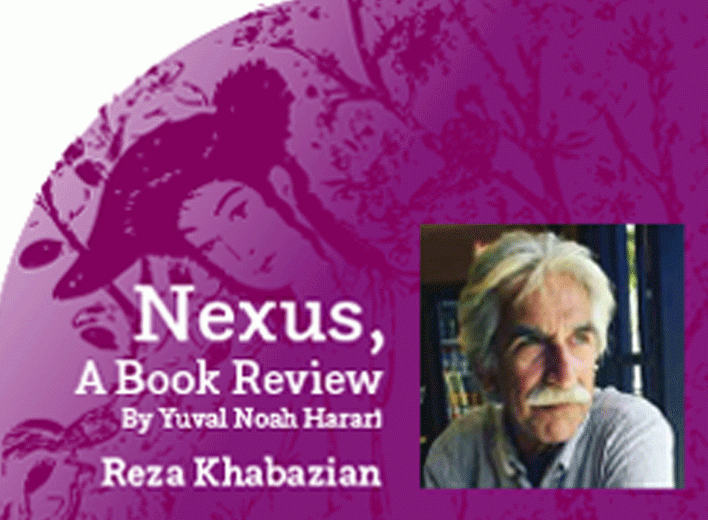An Immigration Story:
An Interview with Maryam Iravanian (Part 1)
By Reza Khabazian
The immigration story of every person is important enough to be worth documenting. The more diversified the background of these persons and their families is revealed, the more colorful the picture is portrayed for the reason behind their immigration.
For this issue, we start covering the immigration story of yet another member of our community who was forced to leave Iran over 25 years ago. This time we are talking to Ms. Maryam Iravanian; we discuss her immigration story and her reasons for leaving Iran. We aim to show the younger generations the logic behind the compulsory emigration of so many people despite knowing life wouldn’t be easy in the new country.
__________________________________________________
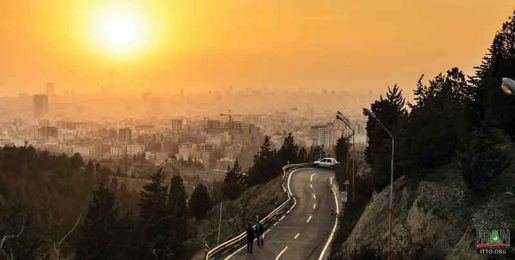
Reza Khabazian (RK): Ms. Iravanian, thank you so much for accepting our invitation to talk to us and our readers about your emigration experience and the subsequent changes in your life. Let us walk you through time and ask you about those years before the revolution.
Maryam Iravanian (MI): I am also grateful for this opportunity by Peyk and hope that my story will lead the way for those who want to embark on this path. I graduated from Pahlavi University in Shiraz in the field of Botany in 1968. Immediately after that, I went to the United Kingdom to get my master’s degree in tropical plant growth in 1971, and after three years I came back to Iran.
RK: Were you married in those years?
MI.: I married shortly after I got back in 1971.
RK.: What was your first professional job after your return?
MI: I was hired by Tehran’s Parks Organization as a professional. In this job, I was responsible for planning and performing green spaces in Tehran’s parks. One year after I began, my first child was born and I enjoyed the sweet taste of motherhood. Fortunately, my job was not just limited to Tehran. Notice was taken that I was an expert in the field of tropical plants, so I was constantly missioned to different parts of Iran.
RK: Obviously this constant traveling added lots of problems to your life, especially while you had a small child.
MI: For sure. However, since I loved my job, I was adapting to its difficulties.
RK: What about your husband, was he interested in helping you with the existing issues?
MI: Unfortunately, he was not ready to cooperate with me in any way. It seemed we lived in two different worlds.
RK: Do you remember noticing the first sparks of the Revolution?
MI: The organization in which I was employed was rarely involved in political issues, but from 1976 on, I witnessed the government’s distress as public demonstrations increased. Gradually, the existing corruption in the Parks Organization pushed me to join the line of discontented people. In 1978, when my second child was born, I had already added participation in anti-government demonstrations to the list of my duties.
RK: Naturally we are getting closer to the time of the Revolution and my question is whether you had a better position in the Parks Organization after the revolution.
MI: It was exactly the opposite way round! Almost six months after the revolution, some of my colleagues and I, mostly women experts, were laid off temporarily.
RK: Did they give you a reason for your temporary layoff?
MI: They didn’t find it necessary to explain anything; just in a simple letter they would announce their decision. I personally think the main reason was gender discrimination. The governing system believed that the best position for women was to be housewives. By dispatching us to far-reaching areas and projects on which no one was willing to work, they were trying to put us in a situation to resign.
RK: Can you provide an example?
MI: Yes, for instance, they had sent us to the south of Tehran, an area that was facing sewage problems due to an overcrowded situation—a project that was totally different from our area of expertise.
RK: How many years were you entangled in this web of employment and no employment?
MI: This instability lasted up to 1995. Almost a year before that, there was a serious change in my private life, too, which was my husband’s moving out of our lives.
RK: Meaning divorce?
MI: No. It means his trip to Dubai and enjoying himself, which was considered a man’s rightful move under the values of the new regime.
RK: You are saying he left you with two young kids, the youngest being almost 6, and went to enjoy himself?
MI: Yes, exactly.
RK: Was it not difficult for you to work, while you had two small kids?
MI: Yes, it was very difficult. On one hand, it was my numerous problems in regard to my job and, on the other hand, finding someone to take care of my kids while I was working. This turned out to be a good part of my life, because then, in 1995, the new government issued an arrest order for 1,000 employees of the Parks Organization, and I was among them.
RK: What was the offense?
MI: The main reasons, such as moral corruption, bribery, having a connection with the outgoing regime, believing in unofficial religions and such, which were different in the case of each arrested person.
RK: How long were you imprisoned?
MI: I was in prison for 17 months, which was accompanied by repeated, horrible persecutions, threats and terrorization, and mostly in solitary confinement. Just think about my situation then—tolerating the persecution, plus not having any news from my kids put me in a very sad condition.
RK: What happened after 17 months?
MI: One day they opened my cell door and ordered me to get my things and follow them. Where to? I didn’t know. On the way, I was thinking about my execution and what would happen to my kids. After walking for a couple of minutes, they led me to a kiosk. There was a small table and a man was sitting there as the judge. Without any explanation, the judge handed me a stamped paper and told me with this letter I am free to go!
RK: Just that?
MI: Yes. Like that.
RK: Didn’t they apologize for wasting your life for 17 months?
MI: Not at all.
RK: As my last question, I wanted to ask you about the reason for your immigration, but with your explanations it is clear that you had the best reasons to immigrate. In the next issue, we will talk about the way you left Iran. Once again, I appreciate your participation in this conversation.
_________________________________________________
This interview was conducted in Persian and translated into English by Mercedeh Basirian Hariri.


